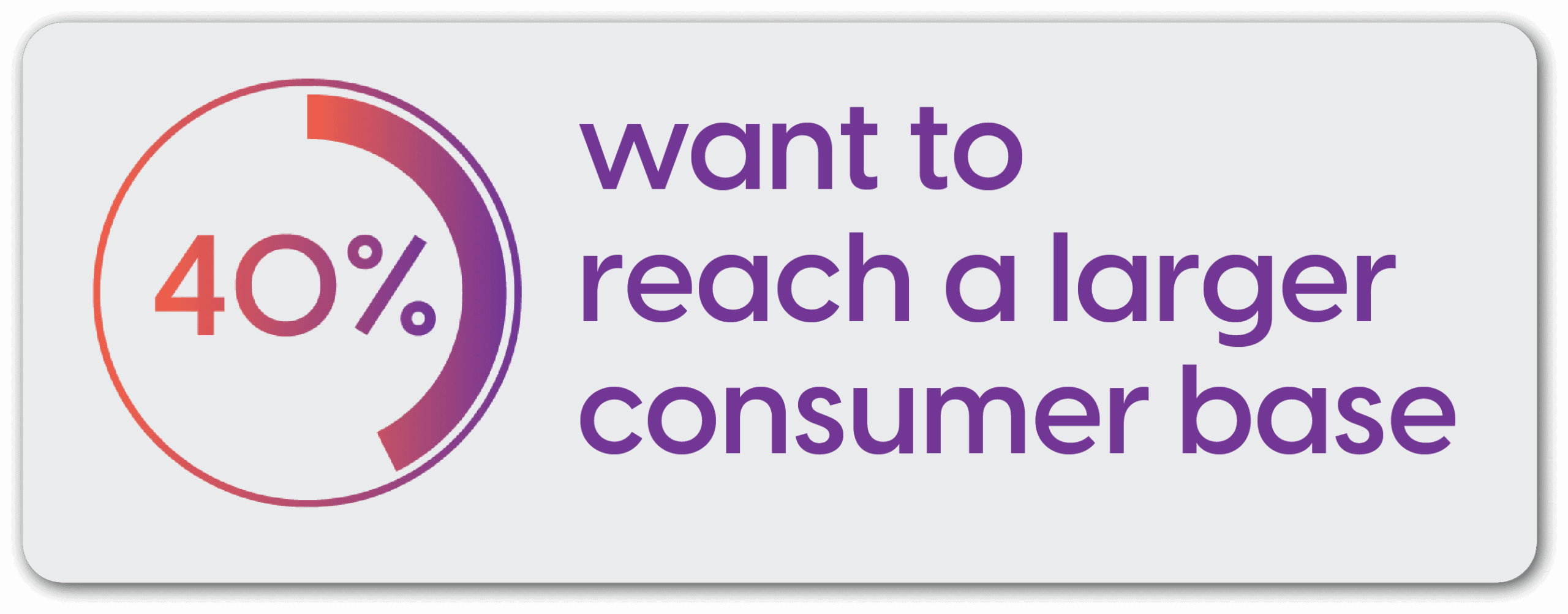
Retailers and brands are ramping up their use of third-party (3P) commerce as part of their e-commerce selling strategy. According to “The State of 3P Commerce Report” by Rithum and Wakefield Research, 51% of global retailer and brand executives said they have used a 3P business model for less than a year. There are several underlying factors why retailers and brands are including 3P commerce as part of their multichannel selling strategy. Here, we share three key drivers identified in the report:
1. Retailers and brands want to reach more consumers online.
 Today’s consumers are shopping online. Retailers and brands need to be present where shoppers already are – they can’t decide for consumers where they should shop. 40% of executives surveyed said reaching a larger consumer base is a top reason why they’re selling using a 3P commerce business model.
Today’s consumers are shopping online. Retailers and brands need to be present where shoppers already are – they can’t decide for consumers where they should shop. 40% of executives surveyed said reaching a larger consumer base is a top reason why they’re selling using a 3P commerce business model.
2. Expand your access to more digital marketing opportunities.
Retail media advertising allows retailers and brands to reach – and target – consumers as they shop online. 36% of surveyed executives said they use 3P commerce to have access to broader digital marketing opportunities, such as retail media advertising.
3. Increase cross-border e-commerce selling opportunities.
It can be difficult to manage product inventory, product information and catalog translations at scale when selling internationally. So it’s not surprising that 96% of executives agree that selling cross-border would not be possible without 3P commerce. Retailers and brands must consider how to navigate cross-border payments, currency valuations, global logistics, international legal requirements and other factors when selling cross-border. 36% of surveyed executives said that a primary motivation for using a 3P commerce business model is so they can add or expand their cross-border opportunities.
How Rithum can help sellers grow profitably on marketplaces
Today’s consumer is comparison shopping. Through its access to hundreds of channels, Rithum can help retailers and brands with their efforts to maximize growth. Expanding into global marketplaces such as Amazon, eBay, Walmart, Zalando and others, requires managing and updating product catalogs. This manual process takes time and costs resources. By automating the process through Rithum, retailers and brands can make updates in real time through one platform.
Rithum’s platform helps sellers optimize their retail media advertising strategy on marketplaces by adjusting bidding, targeting and budgeting in real-time. By using sponsored product listings, banner ads and video ads, sellers can increase visibility and engagement directly with retail platforms.
Selling cross-border requires managing multiple languages, legal requirements, logistics and other factors. Rithum partners with a network of the world’s leading fulfillment and logistics companies to facilitate cross-border e-commerce expansion. Features like Rithum’s AI Magic Mapper uses artificial intelligence to help brands reduce time-to-site and can reduce the time it takes sellers to onboard to new global marketplaces.
Download the full report to learn more about the other reasons retailers and brands are turning to 3P commerce to grow profitably here.
 Back to all
Back to all








